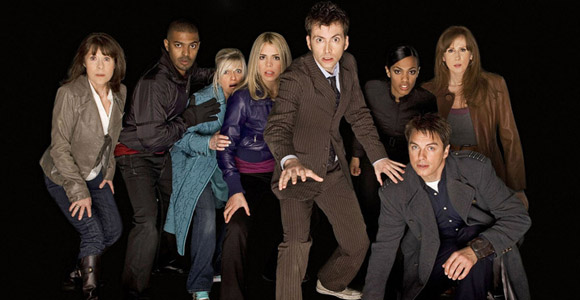The BBC Responds To Doctor Who Racism Accusations
Suddenly

Racism in pop-culture is hard to prove but easy to speculate on. Calling someone a racist for something they created is not to be taken lightly but delving into the implications of written works can open up larger discussions on the subject. So was the intention of an upcoming anthology series titled, “Doctor Who and Race,” but the essays within contained strong enough accussations for the BBC to make an official statement on it.
Racism in Doctor Who was something recently discussed by our readers thanks to the Season 7B episode “Journey to the Centre of the TARDIS,” but Dr. Lindy Orthia edited the anthology, which tackles a lot more than just a single episode. It’s summarized on Amazon:
Doctor Who is the longest running science fiction television series in the world and is regularly watched by millions of people across the globe. Though its scores of fans adore the show with cult-like devotion, the contributors to this book argue that there is a darker side to Doctor Who. Bringing together diverse perspectives on race and its representation in Doctor Who, this anthology offers new understandings of the cultural significance of race in the program—how the show’s representations of racial diversity, colonialism, nationalism, and racism affect our daily lives and change the way we relate to each other. An accessible introduction to critical race theory, postcolonial studies, and other race-related academic fields, the contributors deftly combine examples of the popular cultural icon and personal reflections from viewers to provide an analysis that is at once approachable but also filled with the intellectual rigor of academic critique.
While we’ve not read the book, Digital Spy says part of it “claims that the sci-fi program is racist for failing to cast a black or Asian actor as the Time Lord and accuses the title character of being dismissive of black companions.”
Orthia said, “The biggest elephant in the room is the problem privately nursed by many fans of loving a TV show when it is thunderingly racist.” With strong language like that, the BBC felt the need to respond.
“Doctor Who has a strong track record of diverse casting among both regular and guest cast. Freema Agyeman became the first black companion and Noel Clarke starred in a major role for five years,” said a BBC spokesperson. “Reflecting the diversity of the UK is a duty of the BBC, and casting on Doctor Who is color-blind. It is always about the best actors for the roles.”
The BBC’s statement only addresses one aspect of the overall concerns of course, it’s not just casting but presentation and trends. Do you feel the anthology is being unfair to the long-running sci-fi series or bringing attention to a much-needed discussion? How do you feel Doctor Who compares to other sci-fi as far as representation?
(via Blastr)
Have a tip we should know? tips@themarysue.com